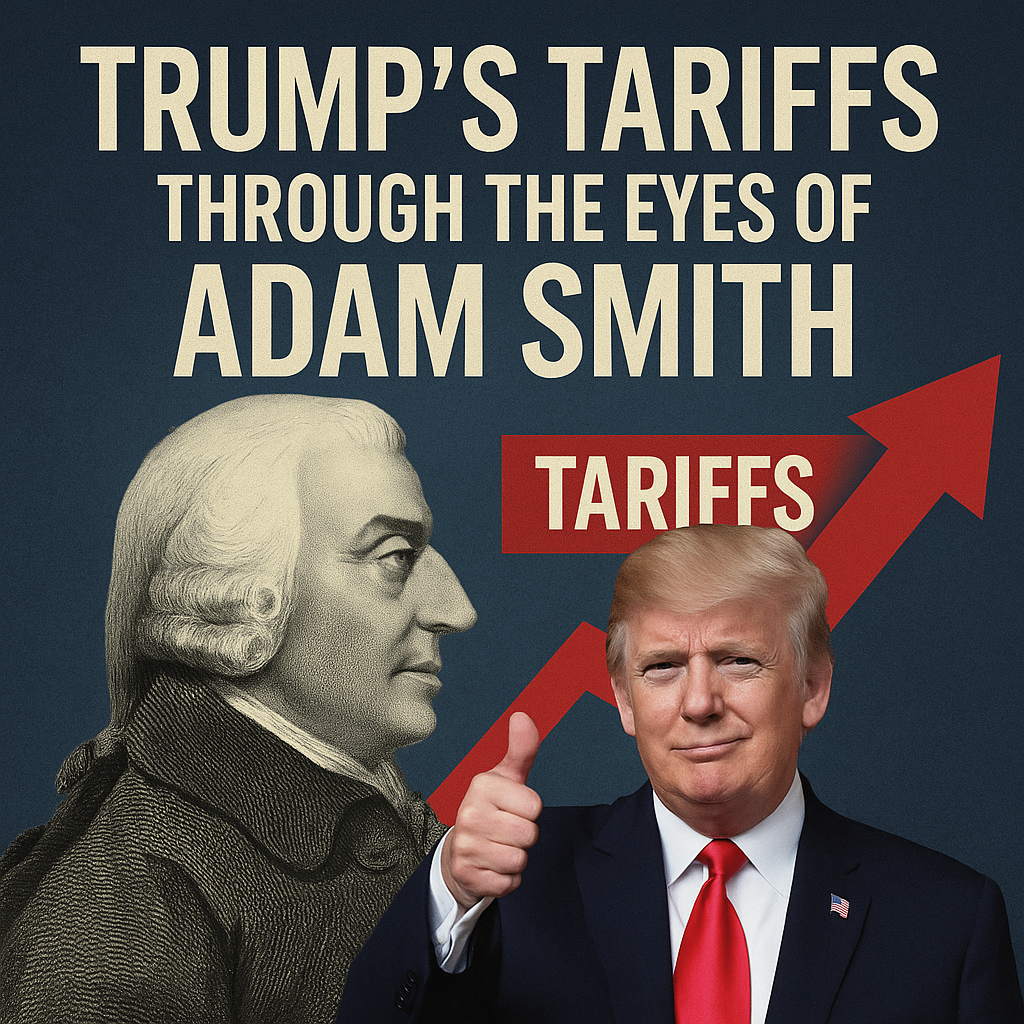Trump’s Tariffs Through the Eyes of Adam Smith: Protectionism or Pragmatism?
In today’s polarized economic landscape, critics are quick to label President Donald Trump’s sweeping tariffs on China as the crude tools of retrograde protectionism. Up to 145% duties on Chinese imports have triggered fury from free-trade purists and panic across global markets. Yet, if one were to revisit the foundational texts of capitalism, a more nuanced reading emerges—particularly from Adam Smith, the 18th-century godfather of modern economics.
Smith Was No Blind Free Trader
Adam Smith’s The Wealth of Nations (1776) is often brandished as a cudgel against trade barriers. But contrary to myth, Smith was not an absolutist. While he warned against arbitrary interference in markets, he carved out specific exceptions—especially when national security or reciprocity was at stake.
One of the most illuminating passages is Smith’s defense of England’s Navigation Acts, which imposed strict trade restrictions to ensure British maritime dominance. Smith conceded they hindered commerce but concluded:
“As defense, however, is of much more importance than opulence, the act of navigation is, perhaps, the wisest of all the commercial regulations of England.”
That rationale echoes Trump’s steel and semiconductor tariffs. These weren’t mere economic levers—they were geopolitical chess moves to restore industrial sovereignty. In 2017, China produced over half the world’s steel, often at a loss, backed by state subsidies. If the U.S. loses the ability to manufacture critical materials, it becomes dangerously reliant on an adversary whose ambitions go well beyond commerce.
Smith, the pragmatist, would likely nod.
Retaliation Against Cheaters: Smith’s Second Exception
In another oft-overlooked caveat, Smith endorsed retaliatory tariffs in cases of demonstrable unfairness.
“There may be good policy in retaliations of this kind, when there is a probability that they will procure the repeal of the high duties or prohibitions complained of.”
This is not ideological purity—it’s chess. Trump’s tariffs were designed to coerce Beijing to the table. And they worked, partially: the Phase 1 deal of 2020 compelled China to make concessions on intellectual property and commit to buying U.S. goods. Though compliance was imperfect, the principle held.
Smith would recognize this as the “transitory inconveniency” that delivers a long-term gain—forcing a closed economy to open up or face consequences.
Non-Tariff Barriers: China’s Favorite Weapon
Smith’s scorn extended to subtler forms of protectionism—those “technical trade barriers” cloaked in regulatory pretense. Sanitary rules, licensing delays, and red tape masquerading as policy are staples of China’s approach. These barriers, Smith wrote, were attempts to:
“…put an end, as much as possible, to the troublesome competition of such odious and disagreeable rivals.”
It’s a tactic China has mastered. According to Politico, Beijing uses “science-based” pretexts to sideline competitors while skirting WTO rules. This is the essence of asymmetric trade—and it’s what Trump’s tariffs attempted to confront head-on.
A Realist’s Endorsement
To be sure, Smith would not cheer tariffs blindly. He would lament their cost to consumers and the risk of tit-for-tat escalation. But as a realist, he would have seen the broader strategy: securing national industries, leveraging retaliation to open foreign markets, and standing firm against a bad-faith actor.
Trump’s tariffs are not a betrayal of Smith’s principles—but a vivid, if unrefined, execution of them. The methods may be coarse, but the logic is classically liberal.
In a world where subtlety is often a mask for surrender, even Adam Smith might conclude: it’s better to wield a blunt instrument than none at all.

